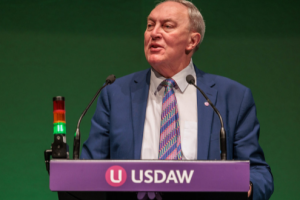In light of this, analysts at Mintel have offered additional insights and debunked what that means for consumer spending.
The insights show:
- Despite the economic slowdown, consumer confidence is up on mid-2023 levels due to rising wages and consumers’ adaptation to constant upheaval, including the impact of COVID-19 and the cost of living crisis.
- Only 11% of consumers expect the economy to grow significantly, compared to 38% who think it’ll stay about the same.
- Ever since mid-2023, average wages have been edging ahead of the inflation rate, meaning that people finally have a little bit more slack in their budget.
Toby Clark, director of EMEA research at Mintel, said: “In the real world, a 0.3% decline isn’t going to feel any different than a 0.3% increase. What really matters is how much money you’ve got left in your bank account at the end of the month.”
- Despite the fall in national economic activity over the second half of 2023, 28% of consumers say that their finances are healthy, and 44% that they’re at least doing OK.
- 21% of people with a household income of less than £15,500 are either struggling or already in financial trouble, compared to just 2% of people earning at least £50,000.
- Mintel’s January data shows a fall in sentiment, but it’s similar to a similar post-Christmas dip in 2021 and 2022.
- The medium-term trend, though, is broadly positive, and sentiment ended 2023 higher than at any point since mid-2022.
- In response to rising prices, 34% are shopping more at low-cost retailers, while 32% are shifting to private labels, and 43% are being more careful about spending on luxuries.
What does this mean for the retail sector?
- Consumers are attempting to minimise the impact by cutting back on luxuries, and switching to private label or lower-cost retailers.
- News of a technical recession won’t significantly shift consumer behaviour in the retail sector.
- Christmas 2023 hints at how polarised any improvement in retail spending will be in 2024. Average spending on gifting fell 5% year-on-year, and gift spending for mid-income households (£25k-£49.9k), dipped by 14%.
- High income shoppers grew spend (+11% y-o-y), with more purchasing in high ticket categories like electricals, jewellery and watches.
Nick Carroll, category director – retail insights at Mintel, added: “The hope is further easing of inflation and continued wage growth will allow finances additional time to recover, and that in the second half of the year we may see a broader range of consumers’ act in the way we saw a proportion of high earners do during Christmas 2023, upping discretionary spend and releasing the purse strings a little.”
 Talking Retail Grocery and product news for independent retailers
Talking Retail Grocery and product news for independent retailers






